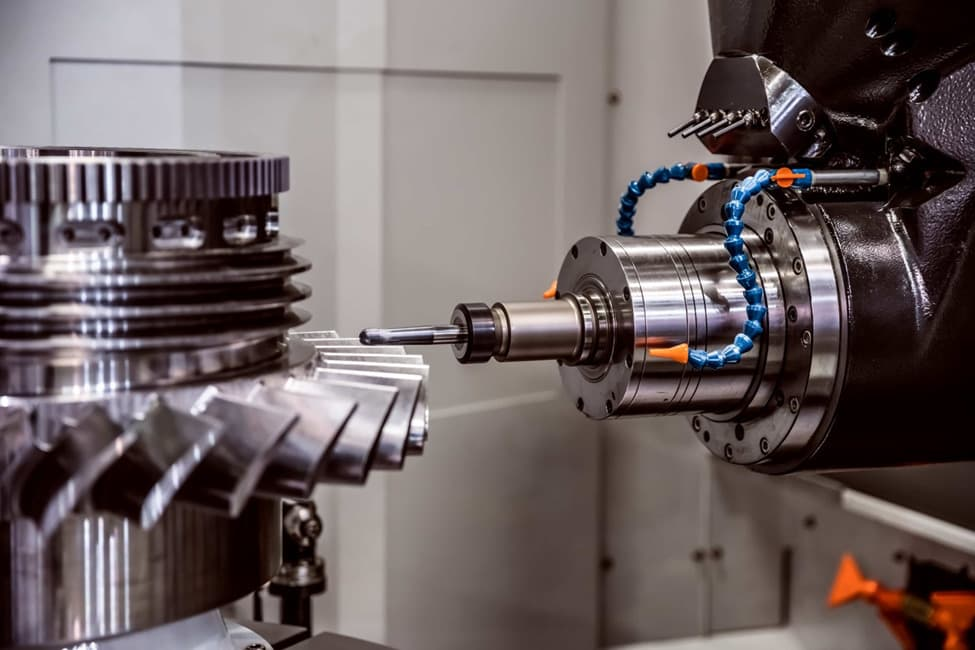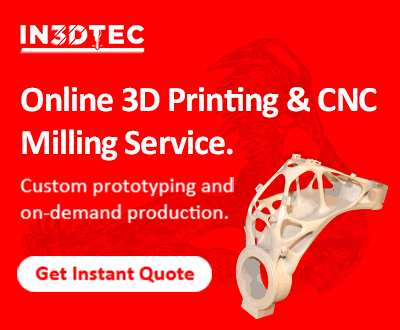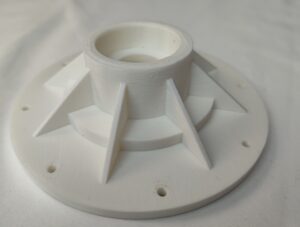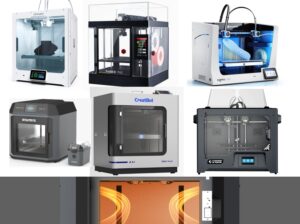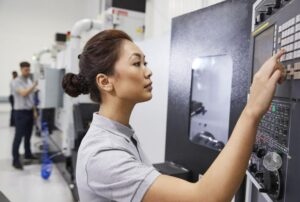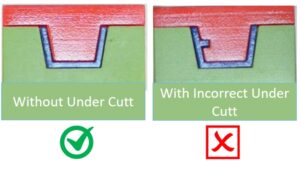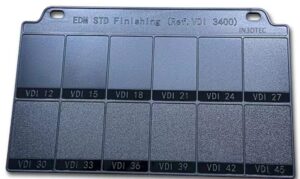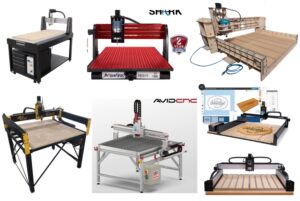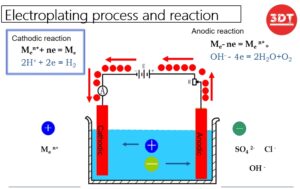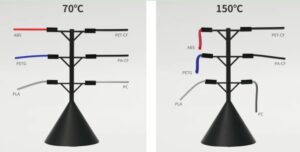How to choose the best precision machine provider?
Precision machining involves specialized equipment and tools to produce high-precision parts or products with tight tolerances. It is typically used in aerospace, defense, medical devices, and electronics industries, where precise dimensions and quality control are critical.
Many different techniques can be used in precision machining, including:
- CNC machining:
This involves using computer-controlled machine tools to produce parts with precise dimensions.
- EDM (electrical discharge machining):
This process uses electrical discharges to remove material from a workpiece, producing highly accurate complex shapes.
- Grinding:
This process involves using abrasive wheels to remove material from a workpiece to achieve the desired shape or finish.
- Turning:
This is a process in which a workpiece is rotated against a cutting tool to produce cylindrical parts with precise dimensions.
Precision machining requires specialized skills, knowledge, and high-quality equipment and tools. It is typically done in a controlled environment to ensure accuracy and repeatability. So, what is precision machining? And who is a precision machine provider?
What Do CNC Machining Service Providers Do?
CNC (Computer Numerical Control) machining service providers use computer-controlled machine tools to produce high-precision parts or products. These providers typically have various CNC machine tools, such as lathes, mills, and laser cutters, programmed with computer software to produce parts with precise dimensions and tolerances.
CNC machining service providers may work with various materials, including metals (such as aluminum, steel, and brass), plastics, and composites. They may also offer a range of finishing options, such as anodizing, painting, and plating, to meet the specific needs of their clients.
In addition to producing parts, CNC machining service providers may also offer services such as prototyping, assembly, and testing to help clients bring their products to market. They may work with various industries, including aerospace, defense, medical devices, and electronics.
Factors to Consider When Choosing a Precision Machine Provider
When choosing a precision machine provider, there are several factors to consider:
- Quality: Ensure the provider has a track record of producing high-quality products. You can ask for references or case studies from previous clients to get a sense of their work.
- Capabilities: Consider the specific capabilities you need from a precision machine provider.Do they have the necessary equipment and expertise to produce the needed parts or products?
- Price: Get quotes from multiple providers to compare prices and determine the best value for your budget. Remember that the cheapest option may only sometimes be the best in terms of quality or capabilities.
- Lead time: Find out how long the precision machine providerwill take to complete your order. If you have a tight deadline, you’ll want to choose a provider to meet your timeline.
- Location: If you’re planning on visiting the provider’s facility or need to ship products back and forth, consider their location to your business.
- Customer service: Look for a provider with good customer service and willing to work with you to find the best solution for your needs.
- Certifications: If relevant to your industry, consider whether the provider has any certifications, such as ISO 9001, which indicates that they have a quality management system in place.
Step-by-step Precision Machining Process
The precision machining process typically involves the following steps:
- Design:The first step in the precision machining process is to create a design for the part or product. This may involve making a 3D computer-aided design (CAD) model or using a physical prototype.
- Programming:Once the design is complete, the next step is to create a program for the CNC machine tools that will be used to produce the part. This may involve using computer-aided manufacturing (CAM) software to create a detailed plan for the machining process.
- Setting up the machine: Before the machining process can begin, the machine must be set up with the appropriate tools and work-holding devices. This may involve installing cutting tools, setting up fixtures, and calibrating the machine.

- Machining: The CNC machine follows the programmed instructions to produce the part during the machining process. This may involve cutting, drilling, milling, or grinding the material to achieve the desired shape and dimensions.
- Inspection: After the part has been machined, it is typically inspected to ensure that it meets the specified tolerances and quality standards. This may involve using precision measuring tools or inspection equipment.
- Finishing: Depending on the application, the part may need to be finished with other processes such as anodizing, painting, or plating.
- Assembly: If the part is part of a larger product, it may need to be assembled with other components.
- Testing: The final step in the precision machining process is testing to ensure that the finished product meets all requirements and specifications.

There are several benefits to working with a precision machine provider:
- High-quality products: Precision machine providers use specialized equipment and processes to produce high-precision parts or products with tight tolerances. This ensures that the finished products meet the necessary quality standards.
- Cost-effectiveness: Precision machining can be more cost-effective in the long run than other manufacturing processes, as it produces high-quality parts with high accuracy and repeatability.
- Customization: Precision machine providers can produce custom parts or products based on specific client requirements. This allows for creation of unique products that meet the client’s needs.
- Quick turnaround: Many precision machine providers can complete orders quickly, benefiting clients with tight deadlines.
- Versatility: Precision machine providers can work with various materials and offer different finishing options, making them versatile for multiple applications.
- Experience: Precision machine providers typically have a wealth of experience in their field, which can be helpful for clients who may need to become more familiar with the machining process.
Applications of Precision Machining
Precision machining is used in a wide range of industries and applications, including:
- Aerospace: Precision machining produces parts for aircraft, missiles, and spacecraft. The high-precision nature of these parts is critical for the safety and performance of the aircraft.
- Defense: Precision machining is also used to produce parts for military equipment, such as tanks, weapons, and vehicles.
- Medical devices: The precision machining process produces a wide range of medical devices, such as implants, prosthetics, and surgical instruments.
- Electronics: Precision machining produces parts for electronic devices, such as smartphones, laptops, and computer components.
- Automotive: Precision machining is used to produce parts for the automotive industry, such as engine components, drivetrain, and suspension components.
- Industrial machinery: Precision machining produces parts for various industrial machinery, such as pumps, valves, and compressors.
- Consumer products: Precision machining produces parts for various consumer products,such as appliances, power tools, and sporting goods.

